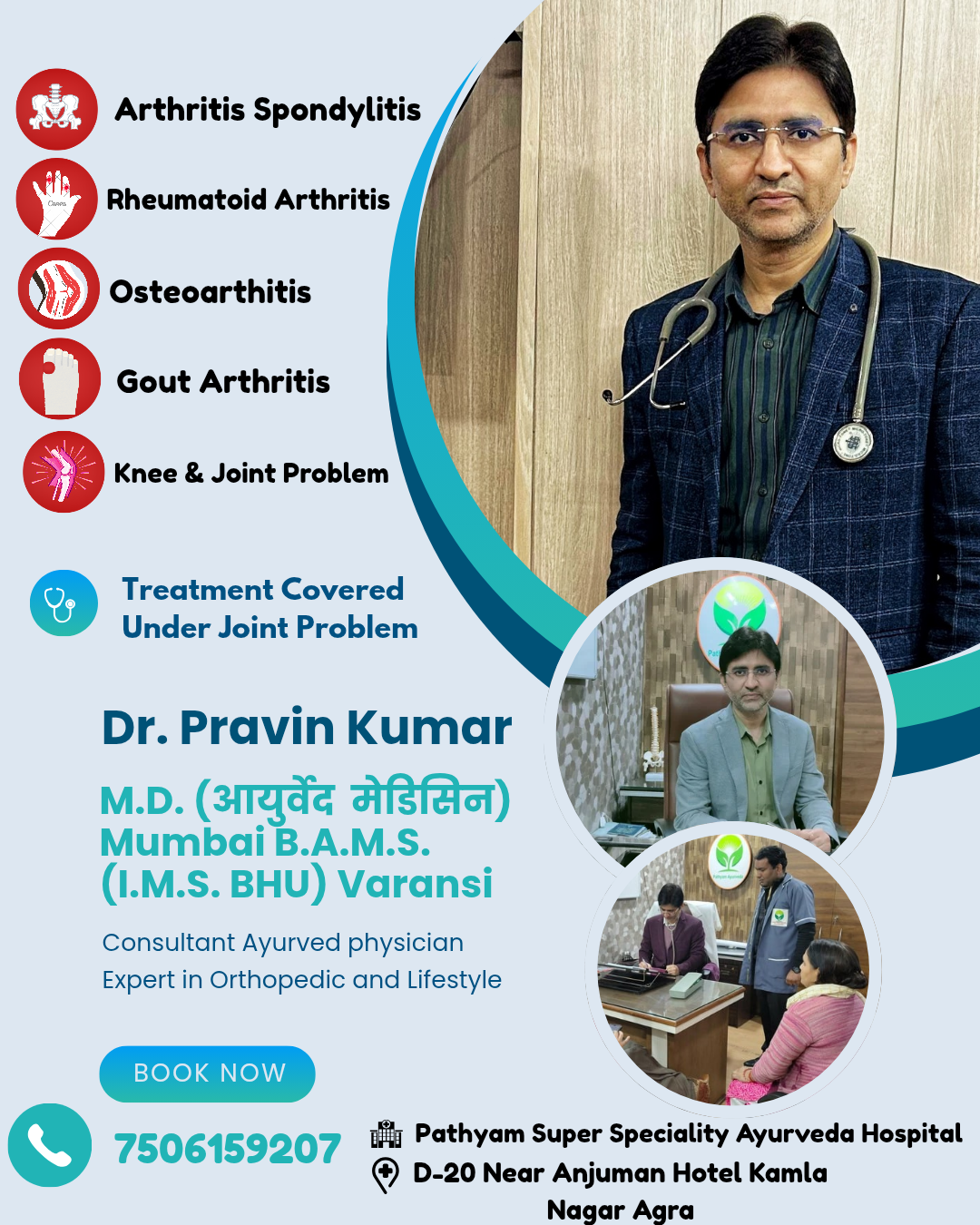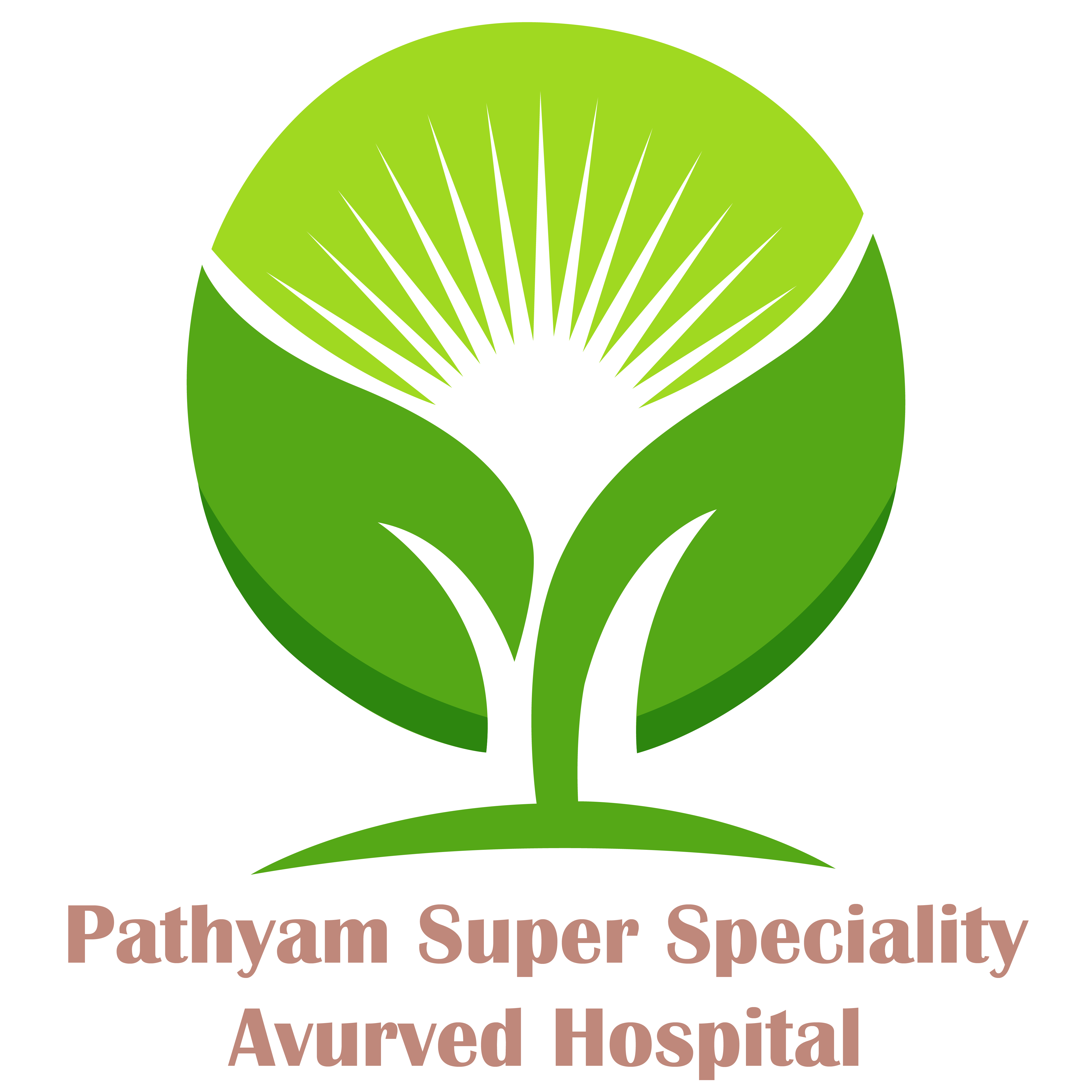Digestive Disorder and Lifestyle Diseases
Decades ago, heart disease, diabetes, cancer, etc., were not as common as today. The age of onset of these diseases is decreasing rapidly. The severity of these diseases and the complications from one illness to another is increasing. It’s becoming a vicious cycle, with one leading to another condition and another treatment leading to another difficulty.
Heart disease, high blood pressure, low BP, diabetes, insomnia, dyslipidemia, obesity, etc., are collectively referred to as lifestyle diseases. The term is an umbrella term that results from a person’s physical and mental functions. A person’s lifestyle, including eating habits, alcohol and cigarette use, exercise patterns, etc., can significantly impact.
Ayurvedic Approach
Ayurveda proposes various approaches to address lifestyle ailments, including detoxification, improved natural cleansing, and rejuvenating therapies and supplements. The overall result is to restore the balance of physical, emotional and spiritual health, leading to a well-rounded and healthy life.
Ayurveda believes that health results from a balance between 3 ingredients or tri doshas – vaata, pitta and kapha. As with any ailment, a specific dosha is identified, and treatment targets the symptoms and aims to restore the balance between the three doshas. The bonus is that these are time-tested, safe and efficient. It has not only a therapeutic effect but also a preventive effect.
Diseases Caused by Digestive Disorders
Our fast-paced lifestyles and irregular eating habits make most of us prone to digestive issues. Ayurveda has been used for the overall health and wellness of all ages. We’ve compiled a list of easy-to-prepare Ayurvedic home remedies you can try to improve your digestive health:
- Amla or Indian Gooseberry: Amla juice is very effective in relieving acidity and heartburn.
- Ghritakumari or Aloe Vera: Aloe vera juice benefits people suffering from irritable bowel syndrome and acid reflux.
- Bael Sharbat or Wood Apple Juice: Bael is known for its soothing and cooling effects on the stomach. It contains a lot of fibre which improves digestion.
- Isabgol or Flea Seeds: Isabgol is used to regulate bowel movements and relieve constipation.
- Chaach or Buttermilk: Chaach is an effective home remedy for severe constipation, indigestion, or excess stomach acid.
- Triphala: Triphala is a blend of 3 herbs: Hard (Haritaki), Amla and Bejada (Bibhitaki). Great for improving digestive health and preventing constipation.
Fast Food Affects Digestion:
The term fast food refers to those particular food items that can be quickly prepared and served instantly. Many fast foods are deficient in fibre. Doctors link low-fibre diets to a higher risk of constipation and digestive disorders such as diverticular disease and a reduction in healthy gut bacteria. Following are the adverse effects of fast food on our bodies:
Kidney and stomach discomfort: Because fast food contains various toxic elements, chemicals and a lot of sodium, these will naturally increase the risk of bloating, gastric ulcer and even gastric cancer. As the body consumes more salt via fast food, the sodium retains more water, which can lead to abdominal swelling or bloating and stomach upset.
Increase constipation: Dietary fibre, found in fruits, vegetables, seeds, whole grains and nuts, plays a vital role in keeping your digestive system running smoothly. Not only do they keep the digestive tract functioning, but they also help move waste out of the body. But unfortunately, you need to consume even more fibre when your diet is filled with fast food, which contains little or no dietary fibre. Less fibre means less water absorption, leading to constipation, which can also lead to an upset stomach.

Creates peptic ulcer: Eating fast food in a row often leads to stomach ulcers. Peptic ulcer is the most common form of ulcer that severely damages the gastrointestinal tract. Excessive spicy food and alcohol intake and stressful life have long been believed to be at the root of stomach ulcers. However, scientific research has highlighted that fast food consumption is also a cause of ulcers.
Causes liver diseases: The liver is another victim of regular fast-food intake. If you thought your stomach didn’t have to suffer the side effects of liver disease from eating fast food, you’d be wrong. Liver disease or any damage to the liver can interrupt the digestive process by causing bloating, swelling or bleeding in the stomach, veins around the oesophagus, and even stomach pain.

In Ayurveda, obesity treatment is not only to lose weight but also to regulate the metabolic process by reducing Ama and excess fat, thereby controlling the function of Kapha without destroying Vata.
Obesity:
Obesity is defined as excess fat accumulation that risks your health. Obesity is a chronic disease defined as an abnormal amount of body fat.
A certain amount of body fat is necessary for energy storage, insulation, shock absorption, and other functions. Being overweight and obese are major risk factors for several diseases, including diabetes, cardiovascular disease and cancer. Obesity develops over time when you eat more calories than you burn. This is a complex issue and a significant health concern worldwide. It is the ratio of height to weight, known as body mass index (BMI), and is usually related to a person’s body fat level.
Nearly one-third of the population is obese. Obesity is rising in our society due to poor eating habits, and most of us work in companies that require little or no physical activity. The good news is that Ayurvedic obesity treatment can cure obesity with the help of various panchakarma remedies and herbs.
In Ayurveda, obesity is known as Medarog, and the deterioration of Kapha causes it. Kapha controls all structure and lubrication of the mind and body, in addition to managing the weight and formation of specific tissues.
Ayurvedic obesity treatment begins with the appeasement of Kapha Dosha. This can be achieved by eliminating Kapha-aggravating foods from your diet. Next, the treatment also focuses on cleansing the Medovahi channels through cleansing herbs, resulting in the loss of excess body weight.
Arteriosclerosis:
Atherosclerosis is the hardening of the arteries in which fat, cholesterol, and other substances build up on the walls of the arteries. This buildup is called plaque, and it can cause arteries to narrow and block blood flow. This can also turn into a blood clot after the plaque ruptures. This condition can occur anywhere in the body’s arteries and is treatable.
In Ayurveda, atherosclerosis is referred to as Dhamanipratichaya. Atherosclerotic conditions are caused due to depletion of Kapha dosha. When kapha dosha is damaged, it enhances the accumulation of ama in the body, which affects circulation or Vyana Vayu. Accumulation of Kapha dosha affects meda dhatu and meda dhatu agni, which leads to decreased metabolic function at dhatu level. This reduction leads to excess meda dhatu, like subcutaneous fat or fat around the organs. This excess meda dhatu invades the rakta dhatu, accumulates in the rakta vaha srotas, and blocks the Vyana vayu that transports blood from the heart to the surrounding tissues. As a result of this blockage, blood pressure rises, leading to atherosclerosis.
Therefore, when treating atherosclerosis, it is essential to eliminate the root cause of the problem, in this case, the accumulation of ama and the destruction of dosha. This is done through the detoxification therapy of panchakarma. The intake of certain herbs like turmeric, cinnamon, arjuna, ashwagandha, brahmi, shankhpushpi etc., accompanies it. These herbs strengthen the heart muscle and help clear blockages in the blood channels. The whole process is accompanied by a balanced diet and exercise regimen, which helps calm the effects of doshas and stops ama from further building up in the passage. This situation can be successfully reversed in a completely natural and holistic manner.
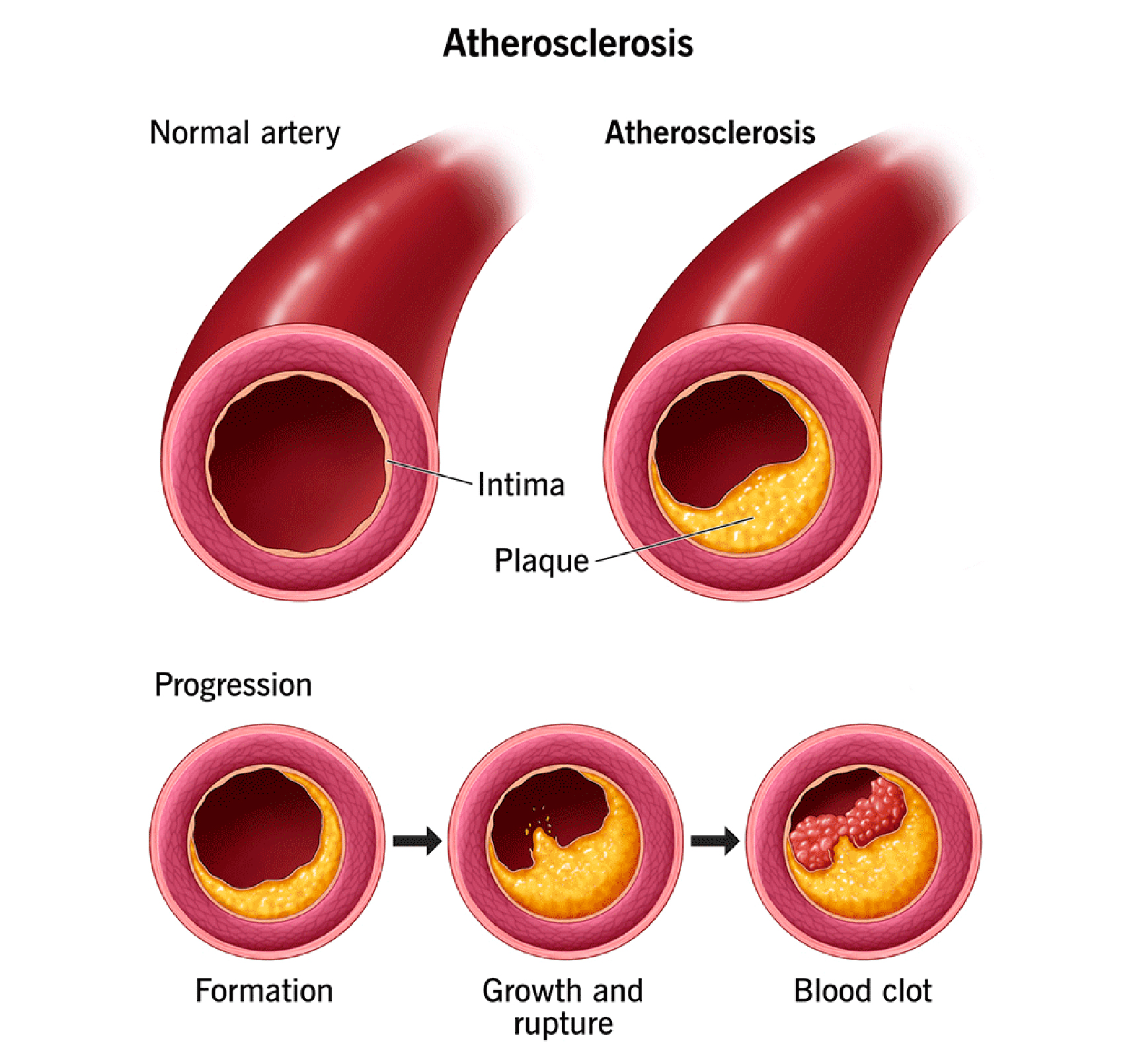

Diabetes:
Diabetes is one of the most common health conditions worldwide. Also known as “Madhumeh” in Sanskrit and Ayurvedic terms, diabetes can make life challenging for various reasons. First, it dramatically affects the dietary choices a person can make. Second, spikes in blood sugar levels can lead to multiple health-related problems. In addition, diabetes is known to primarily affect eye health, cardiovascular health, the nervous system, feet and kidneys. According to Ayurvedic experts, the development of diabetes is due to the weakening of agni function due to high sugar levels.
Ayurveda has a unique approach to diabetes treatment that includes diet or pathya, medicine and medicine, exercise or vyaayam and panchakarma or biological cleansing procedures. It will work if you do it consistently.
Hypertension:
Hypertension is a leading cause of disability and death worldwide. If neglected and untreated, high blood pressure can lead to heart attacks, strokes, kidney failure, and other illnesses.
According to Ayurveda, high blood pressure involves all doshas. We can see signs and symptoms of vata dosha disorders, mainly vyana vayu disorders in hypertension. Healing is about correcting the balance of vata dosha. Pitta vitiation is also common and should be treated. A person with a predominantly pitta and vata constitution and an unbalanced pitta and vata is more likely to develop high blood pressure than anyone else. Unprocessed anger, frustration, irritability, anxiety, and fear can cause endocrine system maladaptations, which can lead to high blood pressure. If you are looking for High BP home remedies, get in touch with our Ayurveda experts for reliable information.


Heart Disease:
Medications for heart disease are effective, but patients are forced to take them for life because the disease is chronic. Ayurveda is a holistic discipline that can improve heart health and even heal heart disease. Several studies prove the efficacy of Ayurvedic treatments in treating heart disease, including heart disease.
An unhealthy lifestyle, low levels of physical activity and a high intake of unhealthy processed foods are India’s leading causes of heart disease. This Western lifestyle can build up cholesterol plaque in the arteries, which can restrict blood flow and cause or exacerbate heart disease. Ayurvedic treatments for heart health include specialized diet plans, herbal preparations, healing methods, yoga and pranayama. These treatments help control or even eliminate the causative factors of heart disease, thereby improving or even reversing the symptoms of the disease.
Ayurvedic treatments, such as Hrid Basti, use warm herbal decoctions topically to improve local blood supply by dilating blood vessels and reducing spasms in the intercostal muscles. Additionally, Ayurvedic herbal preparations, including Terminali aarjuna, increase the contractility of the heart muscle, thereby improving blood circulation.
Stroke:
Brain cells die suddenly from lack of oxygen, possibly due to blocked blood flow in the brain or ruptured arteries. Sudden loss of speech, weakness, or paralysis on one side of the body may be Stroke Symptoms. A suspected stroke can be confirmed by scanning the brain with special x-ray tests, such as a CAT scan.
According to Ayurveda, a stroke is called Pakshaghata and is caused by impairment of the Vata dosha that controls body movement and sensory activity.
Ayurvedic treatments for stroke include procedures such as Vasti, Nasya and Shirodhara, and Abhyanga.
- Vasti is taken as herbal decoction or oil to rid the body of toxins.
- Nasya is a procedure designed to treat the head, nose and sinuses through the nasal administration of herbal decoctions.
- Shirodhara is performed by passing the herbal mixture through the eyebrows in a controlled, constant flow.
- Along with surgery, herbal remedies such as Brahmi Vati, Ashwagandhaaristha, Ashvagandhachurna etc., are offered, which are known to help relieve weakness, fatigue, memory loss and neurological disorders.
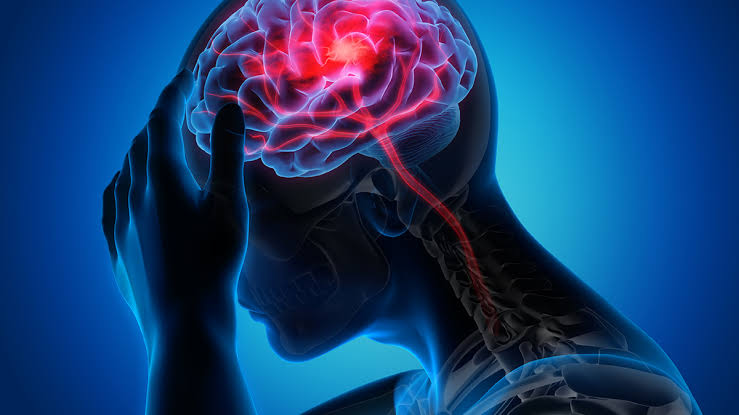
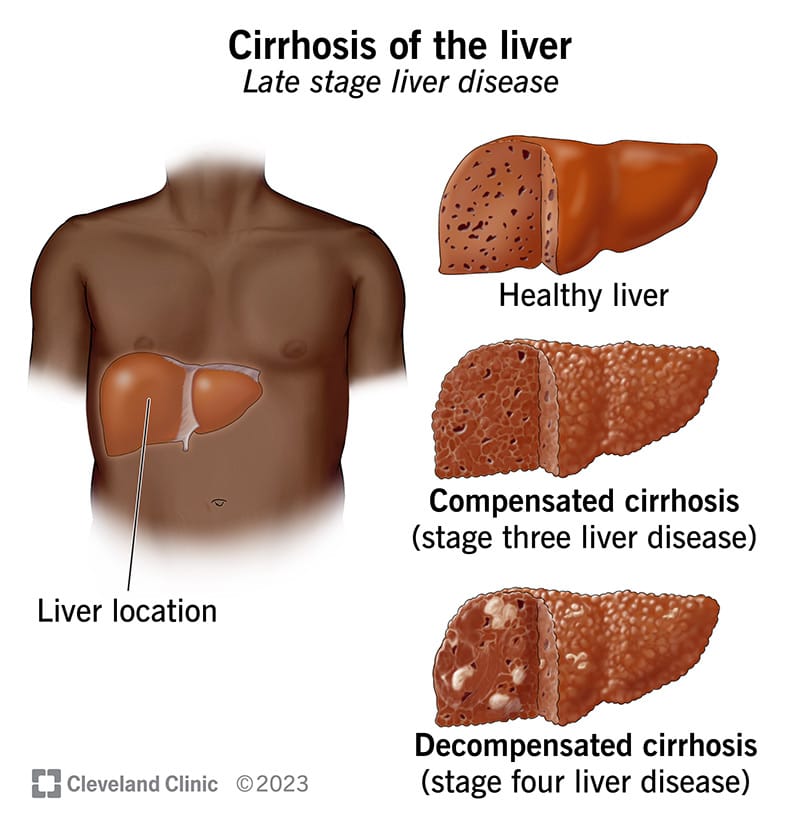
Katuki: Katuki is a better option for older adults with cirrhosis. Typically, the root of the herb is used in powder form. According to Ayurveda, Katuki should be taken three times daily by dissolving the powder in honey. Katuki improves the liver by reactivating tissues and producing bile. Reducing constipation is another benefit it offers.
Arogyavardhini Vati: Arogyavardhini Vati is a compound of Katuki and Copper. Notably, copper is also very useful in treating cirrhosis of the liver. The best way to do this treatment is to take the tablet three times a day. The usual strength of the tablets should be 250 mg. If the condition is more severe than the doctor thinks, the dosage is usually increased to four tablets per day.
Liver Cirrhosis:
Liver cirrhosis is the development of multiple complications in the liver that also indirectly affect other parts of the body. The liver loses its ability to replace damaged cells, causing permanent damage.
Liver cirrhosis is one of many irreversible diseases that Ayurveda can fully treat. Many Ayurvedic treatments can stop the disease from progressing to an irreversible stage.
Ayurvedic treatment of cirrhosis refers to the purification of pitta dosha, the main factor of cirrhosis. Ayurveda includes the consumption of a proper diet, lifestyle changes, and recommended herbal remedies.
Here are some of the most common Ayurvedic medicines that have been shown to slow the progression of cirrhosis:
Bhringraj: According to Ayurveda, Bhringraj is one of the best natural remedies for liver cirrhosis. A teaspoon of bhringaraj juice mixed with honey is the best way to take this herb.
Papaya Seeds: Papaya seeds are another excellent Ayurvedic remedy for liver cirrhosis, especially alcoholic cirrhosis. They are also easy to eat as they can be eaten raw or in the form of juice. A tablespoon of papaya seed juice and ten drops of fresh lime juice can help improve your condition in just one month.


